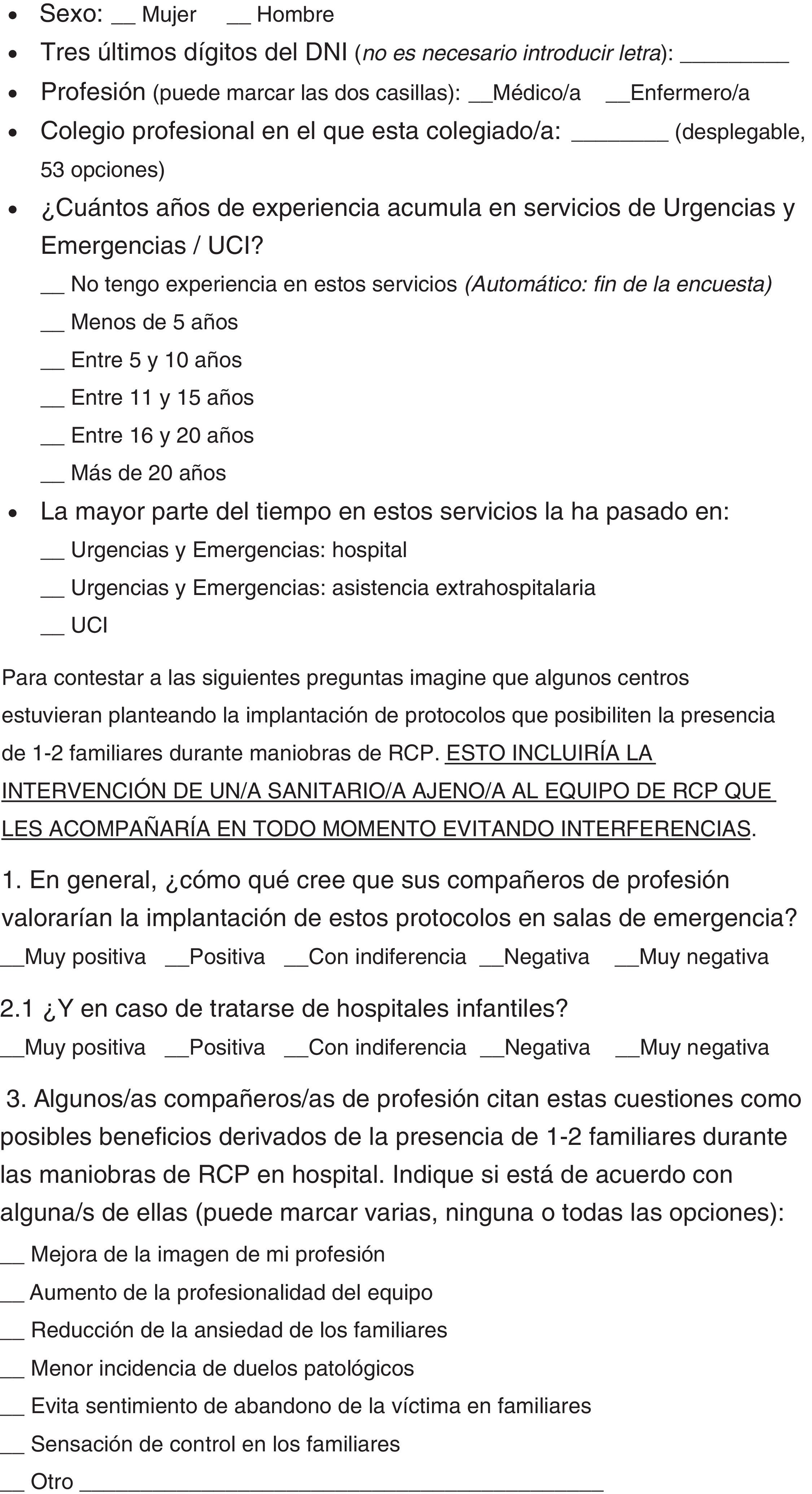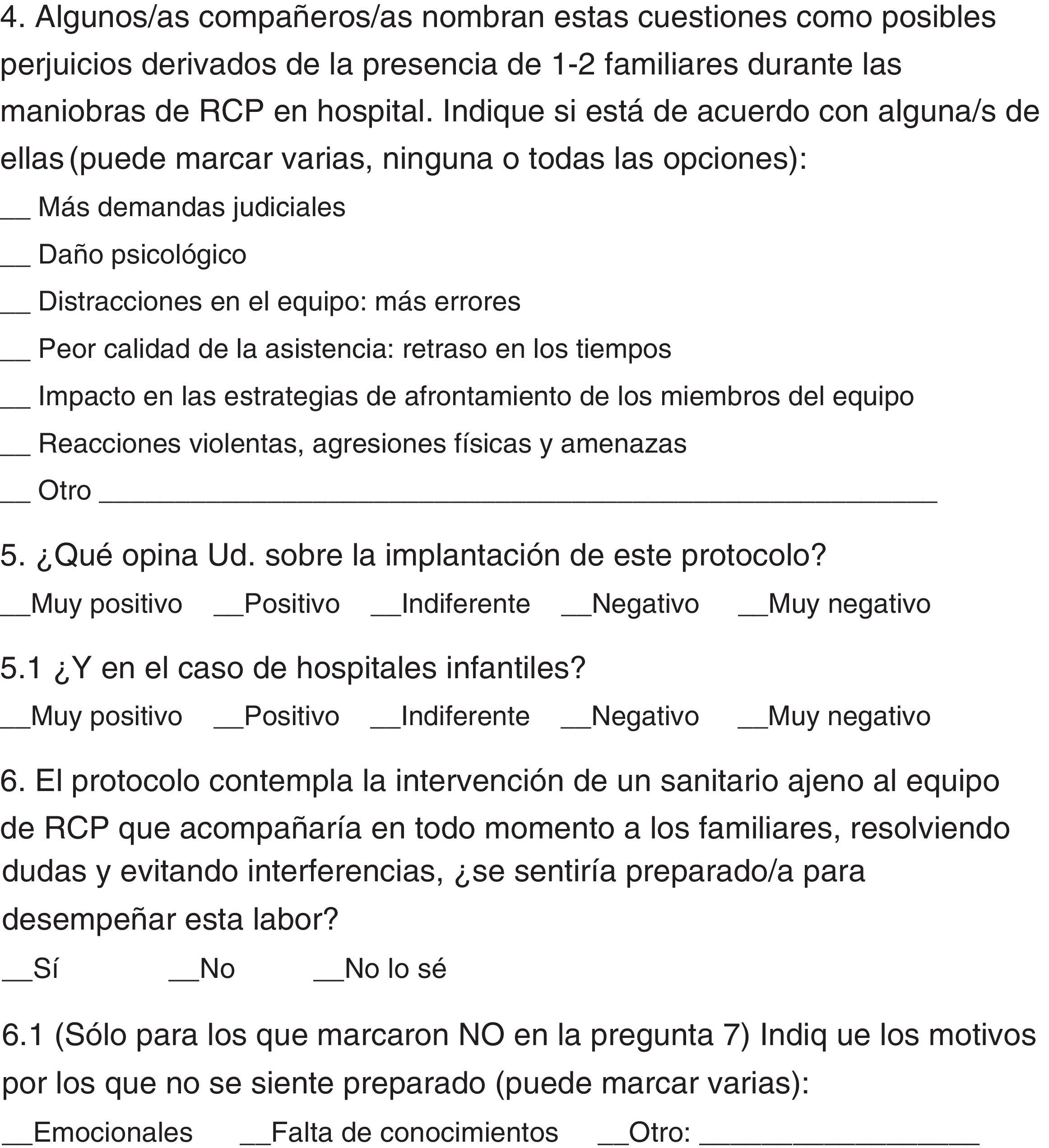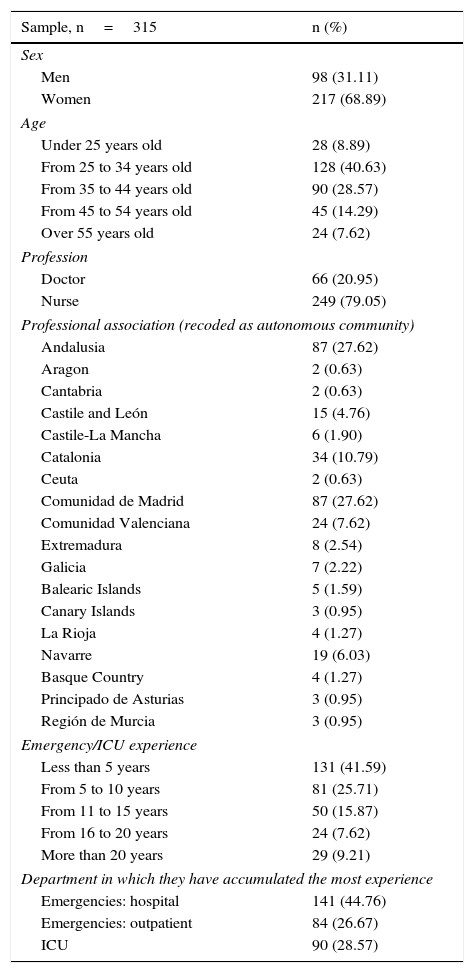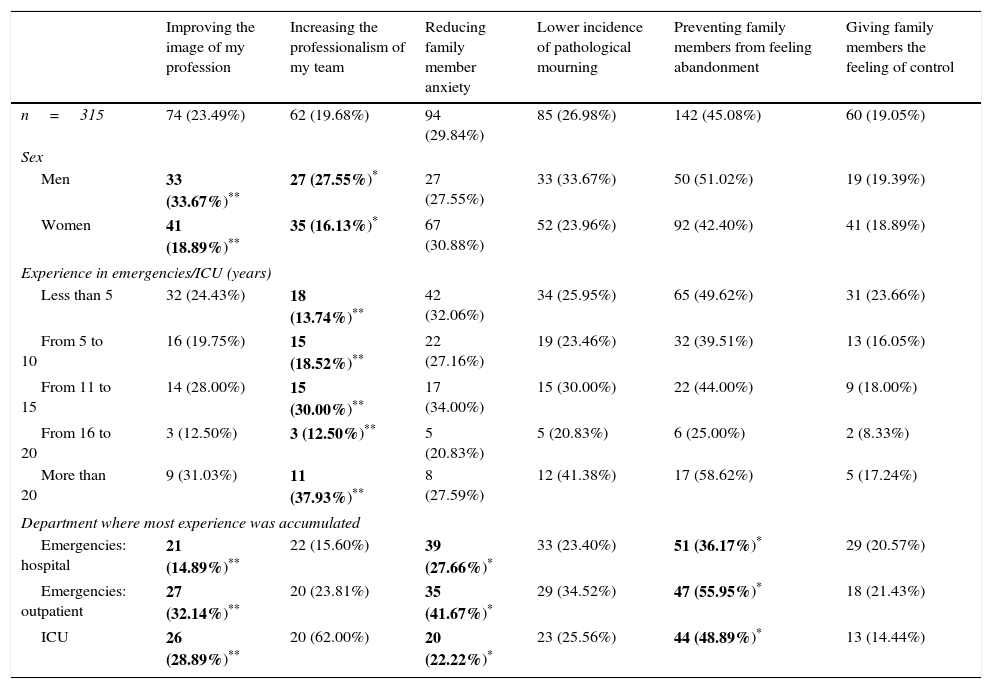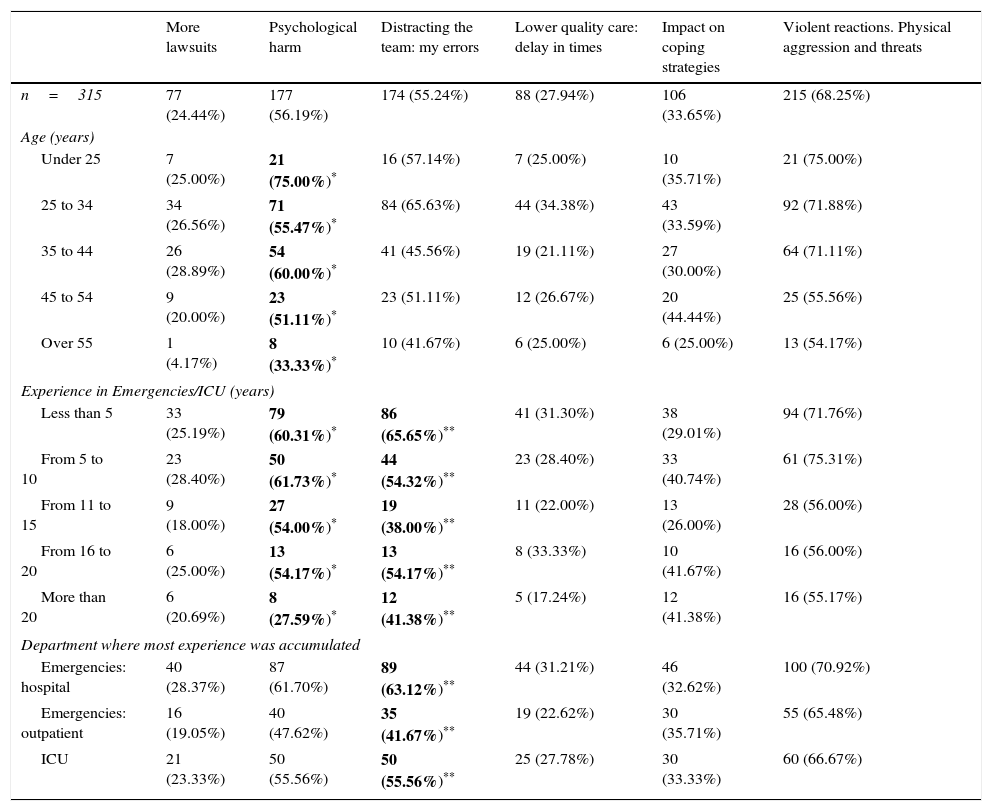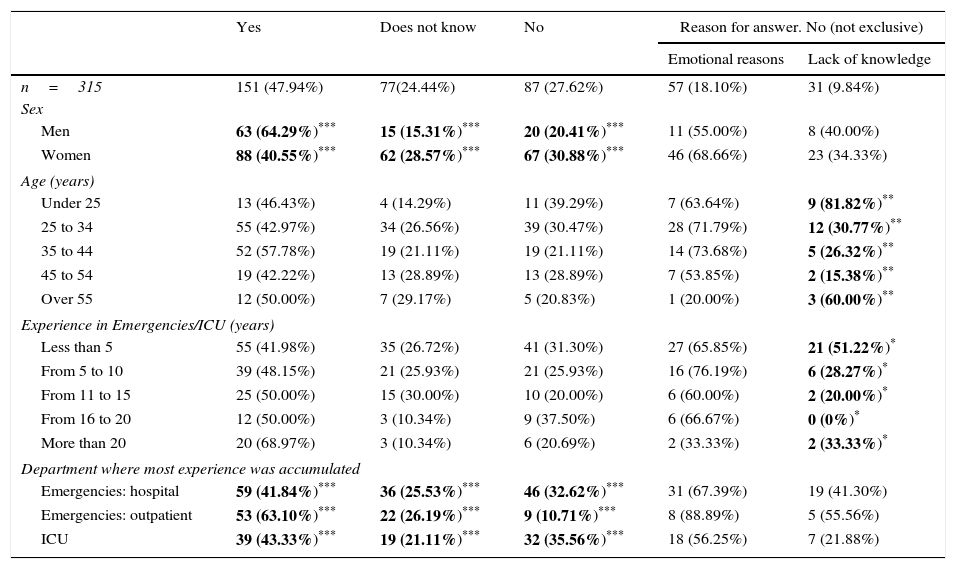The latest recommendations from the American Heart Association and the European Resuscitation Council invite allowance for the presence of relatives (PR) during cardiopulmonary resuscitation (CPR) as an extra measure of family care.
ObjectiveTo discover the opinion of health professionals on the PR during CPR.
MethodCross-sectional observational study through an online survey in Spain, based on a non-probability sample (n=315).
Results45% consider that the PR during CPR is not demanded by users. 64% value the implementation of this practice in a negative or a very negative way. 45% believe that the practice would avoid the feeling of abandonment that is instilled in the relatives, this being the most widely perceived potential benefit. 30% do not believe that it can help reduce the anxiety of relatives. The majority remarked that PR would cause situations of violence, psychological harm in witnesses, and more mistakes during care. 48% feel prepared to perform the role of companion.
ConclusionsMost professionals perceive more risks than benefits, and are not in favour of allowing PR due to a paternalistic attitude, and fear of the reactions that could be presented to the team. Extra-hospital emergency personnel seems to be the group most open to allowing this practice. Most professionals do not feel fully prepared to perform the role of companion.
Las últimas recomendaciones de la American Heart Association y de la European Resuscitation Council invitan a permitir la presencia de familiares (PF) durante la resucitación cardiopulmonar (RCP) como un cuidado familiar más.
ObjetivoConocer la opinión de los profesionales sanitarios sobre la PF durante las maniobras de RCP.
MétodoEstudio observacional descriptivo transversal realizado a través de una encuesta online en España, elaborada con muestreo no probabilístico (n=315).
ResultadosEl 45% cree que la PF durante la RCP no es una demanda de los usuarios. El 64% valora de forma negativa o muy negativa la implantación de esta práctica. El 45% opina que evitaría el sentimiento de abandono que se instala en los allegados, siendo este el beneficio potencial más percibido. El 30% no cree que pueda ayudar a reducir la ansiedad de los familiares. La mayoría señala que la PF provocaría situaciones de violencia, daño psicológico en los testigos y más errores durante la atención. El 48% se siente preparado para desempeñar el papel de acompañante.
ConclusionesLa mayoría de los profesionales percibe más riesgos que beneficios, mostrándose desfavorables a permitir la PF debido a una actitud paternalista y al miedo a las reacciones que estos pudieran presentar hacia el equipo. El personal de Urgencias y Emergencias extrahospitalarias parece el colectivo más abierto a permitir esta práctica. La mayoría de los profesionales no se sienten del todo preparados para desempeñar el papel de acompañante.







